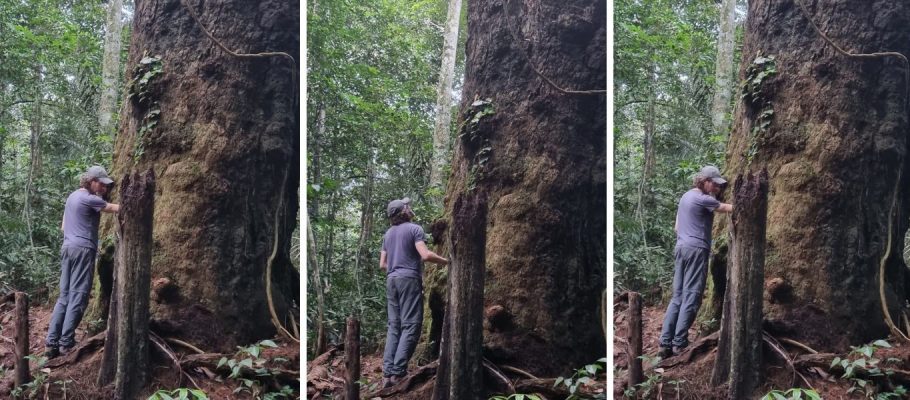
How does this photo of our founder Cameron Cross relate to William Ury, one of the most talked about speakers at SXSW 2024?
Both agree that the great challenge of the inner and outer world is dealing with ourselves! Pauses and silences prevent us from reacting without thinking. Whether in front of a century-old tree or in front of a desk with a computer, intrapersonal communication can be the solution to some conflicts.
It is interesting to analyze that this issue was debated, precisely, in an environment with very little silence! South by Southwest, better known as SXSW, takes place in Austin, Texas, and is one of the most important events today, bringing together people from all over the world for ten days to debate topics such as media innovation, interactivity, behavior, music and consumption . With the last edition held this week, SXSW’s proposal is basically to transform the market and open space for great thinkers and scholars to share their ideas.
Amid countless presentations and conversations, William Ury brought to light questions that were somewhat existential, but which are fundamental to the sustainability of relationships, inside and outside of work. Something that The Crossroads Collective has been observing as it implements projects in private, public and third sector organisations.
According to the expert, the crux of the matter is understanding that the biggest obstacle to getting what we want is not the difficulty we encounter in others, but in ourselves. “Our natural tendency is to react before thinking. If you want to influence others, you first need to get things right with yourself. Negotiation is a game that starts internally. The biggest obstacle in negotiation is ourselves”, he emphasised in the reports that were reverberated in several countries.
At SXSW 2024, Ury explained three steps to dealing with conflictual situations, which are part of his recently released book, not yet translated into Portuguese: “Possible: how to survive (and thrive) in an age of conflict”, which recently won a spontaneous disclosure when he was photographed in the hands of US President Joe Biden.
The anthropologist by training and co-founder of the Harvard negotiation program says that the main message is not to see conflict as something negative, but as an intelligent – and often creative – process.
“We tend to think that conflict is something negative, but it is part of our nature. And the central exit usually has three paths: understand, embrace and transform, mainly through creativity and collaboration. We need more conflict, not less. The best decisions usually come from negotiation.”
Ury recalled that we live in an era in which structures are more horizontal when making decisions – that is, with more people involved. This is why we spend a large part of our personal and professional lives negotiating. In a practical way, William Ury presented a kind of conflict resolution organisation chart, which basically brings together three fundamental pillars:
The first is the “safe place or a panoramic view of the situation from a distance”: being in an environment (or situation) where you can breathe and look, cautiously, at both the complete scenario and the details. “Zoom in to examine the interests behind their stated positions.”
The second is bridges: understanding the other side and using that territory as a starting point to build the path to where you want to take your interlocutor. “There are rarely conflicts over superficial issues. Discovering your deepest motivations will help you approach negotiation more productively.”
And the third is exactly to have a third view or rely on a third person who can receive the conflict, understand both sides better and try to reach a middle ground – or the best term. “Negotiation doesn’t just happen at a table. Zoom out to at least two other tables: the internal negotiations on both sides.”
These are some of the methods we rely on in our leadership improvement and team strengthening processes. One of the methodologies we adopt is ICT – Integrative Community Therapy, created by Dr. Adalberto Barreto in Brazil, and disseminated in 25 countries, it is a reception and listening technique, which allows us to identify pain and also strategies for overcoming it. Internal dialogue associated with a supportive stance within groups can lead us to learn from conflicts and have them as allies.
Our Solutions
for forward-thinking clients.
* Click on the pillar for a full description of solutions.
